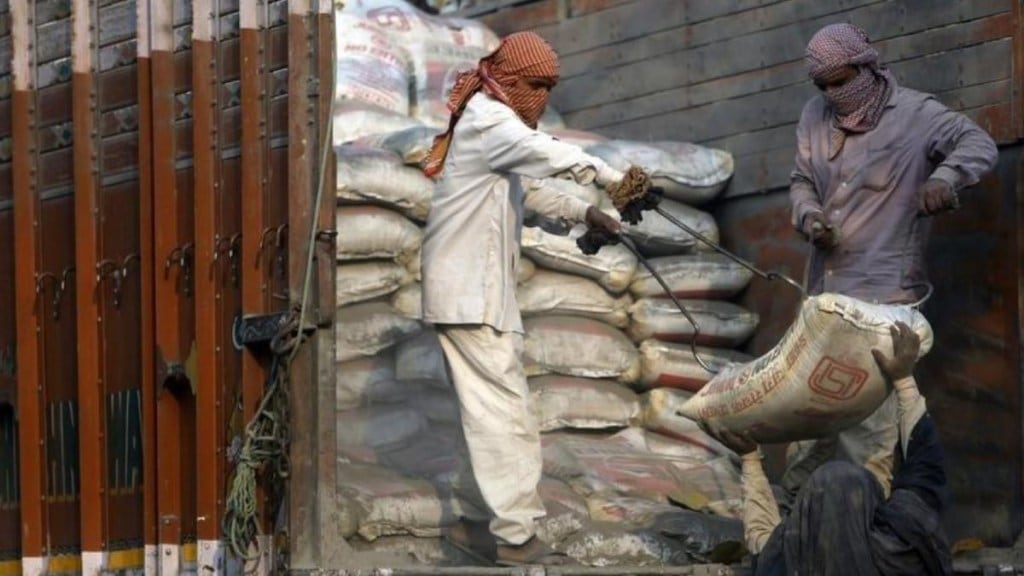The Indian cement sector is expected to add 150-160 million tonne per annum (MTPA) capacity in the five years starting this fiscal, through both organic and inorganic routes, said a report by CRISIL MI&A. This will be backed by an anticipated demand growth in infrastructure and housing and in a bid to capture market share in a highly fragmented and competitive industry. In the last five fiscals, the industry added 119 MTPA capacity to reach a total of 595 MTPA.
As much as 70-75 MT of the capacity addition is expected to be commissioned next fiscal, with 50-55 per cent concentrated in the eastern and central regions. Large players, meanwhile, will account for 50-55 per cent of the planned capacity addition. Robust demand in the past two fiscals has bolstered the balance sheets of large players and some mid-sized ones with strong market presence, prompting them to expand capacity on the back of healthy cash accrual and credit profile.
Demand is projected to grow 10-12 per cent this fiscal, driven by government push to affordable housing and pre-election spending on infrastructure. That said, incremental supply and heightened competition will limit price growth to 0-1 per cent, maintaining prices at Rs 390-395 per 50 kg bag, and keep utilisation at 70-75 per cent.
Next fiscal, CRISIL MI&A expects demand to grow a moderate 4-6 per cent on a high base of the previous three fiscal years. Also, rising raw material cost and a flat base will lead to an uptick of 1-3 per cent in prices to Rs 400-405 per 50 kg bag.
Miren Lodha, Director- Research, CRISIL Market Intelligence and Analytics, said, “Cement prices slipped marginally, by ~1 per cent, during April-December 2023, marking a trend reversal after four years of growth between fiscals 2020 and fiscal 2023 at a compound annual growth rate of 4 per cent. With cement makers adding 35-40 MTPA of capacity this fiscal, the highest in more than a decade, and acquired capacities being ramped up, a significant increase in supply would test market discipline and restrict the increase in prices to only 0-1 per cent.”
CRISIL MI&A Research forecasts a 13-15 per cent correction in power and fuel costs this fiscal on the back of softening crude oil and coal prices. Prices of petcoke and imported non-coking coal — key fuels used for making cement – have softened ~30 per cent and ~50 per cent on-year, respectively, as of December this fiscal. Freight expenditure is also expected to slip 0-2 per cent because of higher volume and moderation in diesel prices.
Sehul Bhatt, Associate Director- Research, CRISIL Market Intelligence and Analytics, said “Softening of power, fuel and freight costs, which account for ~50 per cent of the total production cost, has provided a breather to manufacturers amid steady realisations. Hence, lower costs, steady prices and healthy volumes will expand the sector’s operating margin by 300-350 basis points (bps) to 16.5-18.5 per cent this fiscal. The rebound in profitability comes after a contraction of ~620 bps last fiscal due to higher petcoke and coal prices.”
The report further added that the skyrocketing energy costs over the last two fiscals hurt profitability and balance sheets of players. This led to consolidation in the sector as large players acquired those struggling to compete amid high costs. The capacity share of large players increased to ~48 per cent in fiscal 2023 from ~45 per cent in fiscal 2018. A slew of mergers and acquisitions in the sector over this period resulted in a transfer of 110-115 MTPA capacity, of which large players acquired 43-45 MTPA. Further, their organic capacity addition stood at 50-52 MTPA.
The pace of consolidation has accelerated this fiscal, with more than 20 MTPA of capacity acquired over April- December 2023. This trend is likely to persist as players continue expanding capacity.
